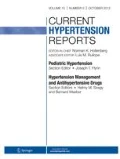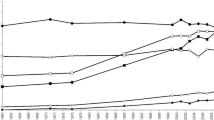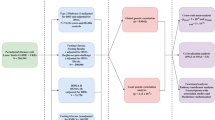Abstract
Contemporary genomic tools now allow the fast and reliable genotyping of hundreds of thousands of variants and permit an unbiased interrogation of the common variability across the human genome. These technical advances have been the basis of numerous recent investigations of genes underlying complex genetic traits, and the results for blood pressure and hypertension have been of particular interest. The pathophysiology of the complex genetic trait blood pressure and hypertension is unclear. The heritability of essential hypertension is high and insights can be gained by finding associated genes. Current genome-wide association studies (GWAS) have identified 10 to 20 loci in or near genes that generally were not expected to be associated with blood pressure or essential hypertension; more significant variants will be discovered when even larger and more refined studies become available. This article gives a short introduction to GWAS and summarizes the current findings for blood pressure and hypertension.


Similar content being viewed by others
References
Papers of particular interest, published recently, have been highlighted as: • Of importance, •• Of major importance
Levy D, DeStefano AL, Larson MG, et al.: Evidence for a gene influencing blood pressure on chromosome 17. Genome scan linkage results for longitudinal blood pressure phenotypes in subjects from the Framingham Heart Study. Hypertension 2000, 36(4):477–483.
Pilia G, Chen WM, Scuteri A, et al.: Heritability of cardiovascular and personality traits in 6,148 Sardinians. PLoS Genetics 2006, 2(8):e132.
van Rijn MJ, Schut AF, Aulchenko YS, et al.: Heritability of blood pressure traits and the genetic contribution to blood pressure variance explained by four blood-pressure-related genes. J Hypertens 2007, 25(3):565–570.
Tobin MD, Raleigh SM, Newhouse S, et al.: Association of WNK1 gene polymorphisms and haplotypes with ambulatory blood pressure in the general population. Circulation 2005, 112(22):3423–3429.
Lifton RP, Gharavi AG, Geller DS: Molecular mechanisms of human hypertension. Cell 2001, 104(4):545–556.
Risch N, Merikangas K: The future of genetic studies of complex human diseases. Science 1996, 273(5281):1516–1517.
Mahomed FA: On the sphygmographic evidence of arterio-capillary fibrosis. Trans Path Soc 1877, 28:394–397.
Pickering GW, Keen H, Rose G, Smith A: The nature of essential hypertension. Lancet 1959, 274(7110):1027–1030.
McKusick VA: Genetics and the nature of essential hypertension. Circulation 1960, 22(5):857–863.
Fan JB, Chen X, Halushka MK, et al.: Parallel genotyping of human SNPs using generic high-density oligonucleotide tag arrays. Genome Res 2000, 10(6):853–860.
Oliphant A, Barker DL, Stuelpnagel JR, Chee MS: BeadArray technology: enabling an accurate, cost-effective approach to high-throughput genotyping. BioTechniques 2002, Suppl:56–58, 60–61.
Lander ES, Linton LM, Birren B, et al.: Initial sequencing and analysis of the human genome. Nature 2001, 409(6822):860–921.
•• Frazer KA, Ballinger DG, Cox DR, et al.: A second generation human haplotype map of over 3.1 million SNPs. Nature 2007, 449(7164):851–861. This is a report of phase 2 of the HapMap project, a large collaborative effort to identify common variation in the human genome.
•• McCarthy MI, Abecasis GR, Cardon LR, et al.: Genome-wide association studies for complex traits: consensus, uncertainty and challenges. Nat Rev 2008, 9(5):356–369. This is a review of the genetic challenges and opportunities of GWAS.
Chakravarti A: Population genetics—making sense out of sequence. Nat Genet 1999, 21(1 Suppl):56–60.
Lander ES: The new genomics: global views of biology. Science 1996, 274(5287):536–539.
Lango Allen H, Lettre G, Estrada K, et al.: The identification of over 135 loci involved in adult height variation provides important insights into the contribution of common variation to a model complex trait [abstract]. Presentation at the 59th Annual Meeting of the American Society of Human Genetics. Honolulu, HI; October 20–24, 2009.
• Purcell SM, Wray NR, Stone JL, et al.: Common polygenic variation contributes to risk of schizophrenia and bipolar disorder. Nature 2009, 460(7256):748–752. This article describes a method to construct a risk score using thousands of nominally nonsignificant SNPs.
Arking DE, Pfeufer A, Post W, et al.: A common genetic variant in the NOS1 regulator NOS1AP modulates cardiac repolarization. Nat Genet 2006, 38(6):644–651.
Ehret GB, Morrison AC, O’Connor AA, et al.: Replication of the Wellcome Trust genome-wide association study of essential hypertension: the Family Blood Pressure Program. Eur J Hum Genet 2008, 16(12):1507–1511.
Ehret GB, O’Connor AA, Weder A, et al.: Follow-up of a major linkage peak on chromosome 1 reveals suggestive QTLs associated with essential hypertension: GenNet study. Eur J Hum Genet 2009, 17(12):1650–1657.
•• Levy D, Ehret GB, Rice K, et al.: Genome-wide association study of blood pressure and hypertension. Nat Genet 2009, 41(6):677–687. This reference and reference [23••] are the largest published GWAS. Collectively, they identify more than a dozen blood pressure and hypertension genes.
•• Newton-Cheh C, Johnson T, Gateva V, et al.: Genome-wide association study identifies eight loci associated with blood pressure. Nat Genet 2009, 41(6):666–676. This reference and reference [22••] are the largest published GWAS on blood pressure traits so far. Collectively, they identify more than a dozen blood pressure and hypertension genes.
Wang Y, O’Connell JR, McArdle PF, et al.: Whole-genome association study identifies STK39 as a hypertension susceptibility gene. Proc Natl Acad Sci U S A 2009, 106(1):226–231.
Cho YS, Go MJ, Kim YJ, et al.: A large-scale genome-wide association study of Asian populations uncovers genetic factors influencing eight quantitative traits. Nat Genet 2009, 41(5):527–534.
MacMahon S, Peto R, Cutler J, et al.: Blood pressure, stroke, and coronary heart disease. Part 1, Prolonged differences in blood pressure: prospective observational studies corrected for the regression dilution bias. Lancet 1990, 335(8692):765–774.
Goring HH, Terwilliger JD, Blangero J: Large upward bias in estimation of locus-specific effects from genomewide scans. Am J Hum Genet 2001, 69(6):1357–1369.
•• Manolio TA, Collins FS, Cox NJ, et al.: Finding the missing heritability of complex diseases. Nature 2009, 461(7265):747–753. This meeting report on the “missing heritability” of complex genetic traits discusses in detail possible reasons why only little heritability can be explained so far.
Yang HC, Liang YJ, Wu YL, et al.: Genome-wide association study of young-onset hypertension in the Han Chinese population of Taiwan. PloS One 2009, 4(5):e5459.
Kato N, Miyata T, Tabara Y, et al.: High-density association study and nomination of susceptibility genes for hypertension in the Japanese National Project. Hum Mol Genet 2008, 17(4):617–627.
• Adeyemo A, Gerry N, Chen G, et al.: A genome-wide association study of hypertension and blood pressure in African Americans. PLoS Genet 2009, 5(7):e1000564. This is the only GWAS on hypertension in African American individuals published to date.
Levy D, Larson MG, Benjamin EJ, et al.: Framingham Heart Study 100 K Project: genome-wide associations for blood pressure and arterial stiffness. BMC Med Genet 2007, 8(Suppl 1):S3.
Org E, Eyheramendy S, Juhanson P, et al.: Genome-wide scan identifies CDH13 as a novel susceptibility locus contributing to blood pressure determination in two European populations. Hum Mol Genet 2009, 18(12):2288–2296.
•• Wellcome Trust Case Control Consortium: Genome-wide association study of 14,000 cases of seven common diseases and 3,000 shared controls. Nature 2007, 447(7145):661–678. This report describes the first large GWAS on seven complex genetic traits.
Sabatti C, Service SK, Hartikainen AL, et al.: Genome-wide association analysis of metabolic traits in a birth cohort from a founder population. Nat Genet 2009, 41(1):35–46.
Saxena R, Voight BF, Lyssenko V, et al.: Genome-wide association analysis identifies loci for type 2 diabetes and triglyceride levels. Science 2007, 316(5829):1331–1336.
Acknowledgments
Dr. Ehret receives partial funding for his work on blood pressure and hypertension though the “FEHGAS Study” (National Heart, Lung, And Blood Institute grant 5R01HL086694-02; Dr. Ehret has additional affiliations with the Cardiology Center, Geneva University Hospital, Geneva, and the Institute of Social and Preventive Medicine, Lausanne University Hospital, Lausanne, both in Switzerland. Dr. A. Chakravarti, Principal Investigator) and through a Special Program University Medicine (SPUM) grant funded by the Swiss National Science Foundation (Dr. M. Bochud, Principal Investigator).
Disclosure
No potential conflicts of interest relevant to this article were reported.
Author information
Authors and Affiliations
Corresponding author
Rights and permissions
About this article
Cite this article
Ehret, G.B. Genome-Wide Association Studies: Contribution of Genomics to Understanding Blood Pressure and Essential Hypertension. Current Science Inc 12, 17–25 (2010). https://doi.org/10.1007/s11906-009-0086-6
Published:
Issue Date:
DOI: https://doi.org/10.1007/s11906-009-0086-6




